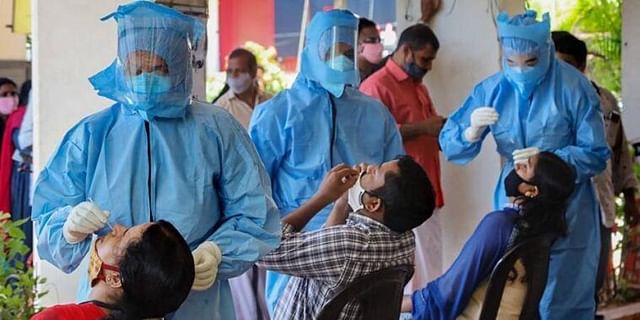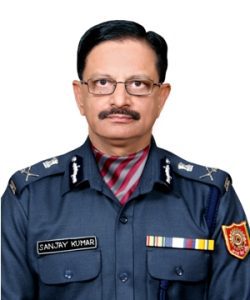
All international passengers should be tested: Sanjay Kumar, ex-DG, NDRF

COVID fear is back.
Four cases of BF.7 and BF.12 variants of the omicron virus have already been reported from Odisha and Gujarat. Though its victims are said to have been cured between July and November, it is a fact that for months these cases were under wraps. And the country woke up to the potent threat as the new variants started spreading from China to large parts of the US and Europe, courtesy of air travellers flying to and fro.
So to understand the likely impact of this on India better and the possible ways to handle it in case it escalates further, The Federal spoke to former Director General of the National Disaster Response Force (NDRF), Sanjay Kumar.
Also read: COVID: Drills, oxygen plants: India ready to tackle another wave
The past two waves of the pandemic were attempted to be contained by invoking the provisions of the Disaster Management Act (DMA). The Union Home Ministry could enforce severe restrictions on public under this law passed in 2005. The propriety demanded, says Kumar, that not only NDRF but also National Disaster Management Authority (NDMA) should have been actively involved in decision-making since the steps taken by the government had to be implemented throughout the country after being often issued via the NDMA.
Since NDMA is headed by the Prime Minister, the decisions taken at the highest levels were generally seen as having the nod of the NDMA which is a multimember body with a specific task that is beyond the purview of political leadership alone.
Also read: Virologist Gagandeep Kang on Covid: At the moment, India is doing fine
The lack of an adequate amount of consultations at higher levels led to problems at the implementation stage of the first lockdown in March 2020. Supplies fell short and retailers came under the threat of their outlets being run over and looted. Amendments had to be made to save supply chains from being snapped, recalls Kumar who joined the Indian Police Service (IPS) in 1985 and was Director General of Himachal Pradesh Police before heading the NDRF.

He points out that the current wave in China came as a result of widespread protests by thousands of people who could not bear the stringent lockdown and the hardship brought by this.
Kumar retired from service about a year before the outbreak of the first wave. Yet, he was worried about the fate of the NDRF personnel who were often deployed strategically in different parts of the country as a part of the fight against the pandemic.
Also read: Mandaviya to hold meeting with state health ministers to review Covid situation
“Several of our men got infected by the virus, but fortunately there were no casualties as NDRF is mainly a force of robust young men. The average age of our personnel is about 45 years. These personnel mostly played a supportive role to help healthcare providers and medical authorities,” Kumar said.
“They also worked to oversee COVID control rooms and quarantine centres and other strategic locations like the country’s borders with Nepal to provide assistance to the jawans and officers of Seema Suraksha Bal (SSB). Some of the NDRF teams have a trained medical and paramedical component as well though NDRF does not have a direct role to play like others or regular medical corps in the containment of COVID-19 epidemic,” he added.
Speaking in Delhi on Thursday (December 22), Kumar said persons arriving through international flights should immediately be tested.
The government has so far ordered tests for only 2% of randomly selected persons arriving on flights from vulnerable spots. Cent
“100 per cent screening at international arrival points followed up by quarantine. To make it more manageable, the number of international travellers should be curtailed. This is a better option than waiting for what could warrant lockdown or similar other restrictions. Limited tests of international passengers may not be very fruitful as the scale of infections in several countries is rising,” said Kumar.
He said strict monitoring of the situation is needed with India gearing up to host international events like Pravasi Bharatiya Divas, or Indian Diaspora show, at Indore in January and G-20 summit in New Delhi in September.
He stressed the need for intensive research and the use of all available scientific tools to find out more about the new strains of the virus so as to contain them and break their chain effectively.
“This had suffered quite a bit through one of the earlier waves because of a tussle between the Central Health Ministry and a state government run by a non-BJP and non-NDA alliance. The lab for research on pathogens was located in one of the cities of the state. The process had to be shifted to a lab in another state capital,” said Kumar.

